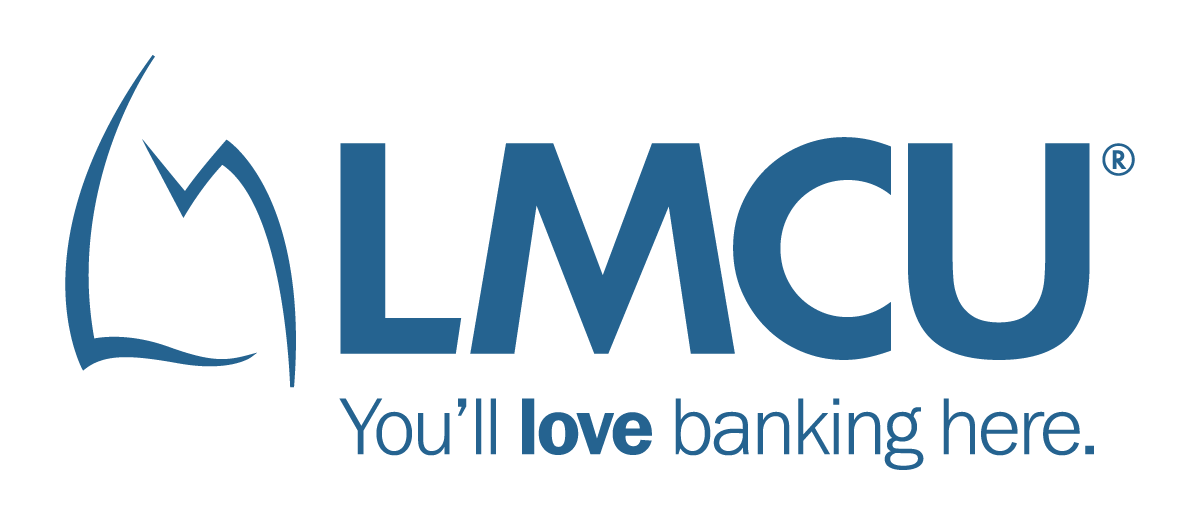8 Best IRA CD Rates for 2025
Many or all of the products on this page are from partners who compensate us when you click to or take an action on their website, but this does not influence our evaluations or ratings. Our opinions are our own.
ALSO CONSIDER: Best CD rates || Best IRA accounts || Best Roth IRA accounts
An IRA CD is an IRA — an individual retirement account — that holds certificates of deposit. The best IRA CD rates can help you see what guaranteed returns you could get for retirement funds stored at a bank. Unlike other types of investments, they don’t come with much risk.
Strict editorial guidelines to ensure fairness and accuracy in our coverage to help you choose the financial accounts that work best for you. See our criteria for evaluating banks and credit unions.
More than 100 financial institutions surveyed by our team of experts.
More than 50 data points considered for each bank and credit union to be eligible for our lists. For this CD list, more than five data points were considered per institution.
» Learn more about other safe investment options
IRA CDs provide guaranteed returns, but stocks and other investment options at brokerage firms can provide much higher yields. If you’re an investor decades from retirement, experts recommend putting minimal, if any, retirement funds into CDs and allocating more of your IRA to stocks and bonds.
If IRA CDs make sense for your retirement plans, banks and credit unions generally offer up to three types of IRAs: traditional IRAs that tax money upon withdrawal, Roth IRAs that tax contributions the year they’re added and let earnings grow tax-free, and SEP IRAs that have higher limits than the other types but are for self-employed savers and small businesses.
Nerdy Tip
The Fed lowered its benchmark rate multiple times in the second half of 2024. As a result, banks and credit unions have started lowering CD rates. With a CD, you can lock in high rates while they’re still around.
8 Best IRA CD Rates
| Bank/institution | NerdWallet rating | Minimum deposit | APY | Learn more |
|---|---|---|---|---|
4.3/5 | $0 Member FDIC | 1-year APY 4.00% 3-year APY 3.50% 5-year APY 3.50% | ||
5.0/5 | $0 Member FDIC | 1-year APY 4.00% 3-year APY 4.00% 5-year APY 4.15% | ||
5.0/5 | $0 Member FDIC | 1-year APY 3.90% 3-year APY 3.50% 5-year APY 3.50% | ||
4.7/5 | $1,000 Federally insured by NCUA | 1-year APY 4.00% 3-year APY 3.65% 5-year APY 3.65% | ||
3.9/5 | $1,000 Federally insured by NCUA | 1-year APY 3.30% 3-year APY 3.10% 5-year APY 3.10% | ||
4.2/5 | $500 Federally insured by NCUA | 1-year APY 4.08% 3-year APY 3.35% 5-year APY 3.35% | ||
5.0/5 | $1,000 Federally insured by NCUA | 1-year APY 4.20% 3-year APY 3.65% 5-year APY 3.55% | ||
5.0/5 | $1,000 Federally insured by NCUA | 1-year APY 4.10% 3-year APY 4.05% 5-year APY 4.10% | ||
3.9/5 | $500 Federally insured by NCUA | 1-year APY 3.20% 3-year APY 3.25% 5-year APY 3.35% | ||
3.9/5 | $1,000 Member FDIC | 1-year APY 3.75% 3-year APY 3.25% 5-year APY 3.25% |
Our pick for
IRA CD rates
Minimum deposit
$0
Member FDIC
APY
1-year APY 4.00%
3-year APY 3.50%
5-year APY 3.50%
Minimum deposit
$0
Member FDIC
APY
1-year APY 4.00%
3-year APY 4.00%
5-year APY 4.15%
Minimum deposit
$0
Member FDIC
APY
1-year APY 3.90%
3-year APY 3.50%
5-year APY 3.50%
Minimum deposit
$1,000
Federally insured by NCUA
APY
1-year APY 4.00%
3-year APY 3.65%
5-year APY 3.65%
Minimum deposit
$1,000
Federally insured by NCUA
APY
1-year APY 3.30%
3-year APY 3.10%
5-year APY 3.10%
Minimum deposit
$500
Federally insured by NCUA
APY
1-year APY 4.08%
3-year APY 3.35%
5-year APY 3.35%
Minimum deposit
$1,000
Federally insured by NCUA
APY
1-year APY 4.20%
3-year APY 3.65%
5-year APY 3.55%
Minimum deposit
$1,000
Federally insured by NCUA
APY
1-year APY 4.10%
3-year APY 4.05%
5-year APY 4.10%
Minimum deposit
$500
Federally insured by NCUA
APY
1-year APY 3.20%
3-year APY 3.25%
5-year APY 3.35%
Minimum deposit
$1,000
Member FDIC
APY
1-year APY 3.75%
3-year APY 3.25%
5-year APY 3.25%
» Want to see more CD options? Check out our list of the best CD rates overall
Best IRA CD rates 2025
Discover® Bank.
Synchrony Bank.
Ally Bank.
Alliant Credit Union.
Pentagon Federal Credit Union.
Self-Help Credit Union.
Andrews Federal Credit Union.
NASA Federal Credit Union.
Lake Michigan Credit Union.
NBKC.
What is an IRA CD?
An IRA CD is an investment account that holds CDs designated for retirement. You can generally open an IRA plan at a bank or brokerage that holds multiple CDs or other interest-bearing accounts. An IRA CD can be one of three types: traditional IRA with pre-tax money, Roth IRA with after-tax money (and tax-free earnings), or SEP IRA for self-employed savers and small businesses. (See more details about IRAs.)
» Learn more about using CDs for retirement
IRA vs. CD: What's the difference?
A certificate of deposit, or CD, is a type of savings account that requires people to put money away for a set period. That’s called the "term length," and it generally ranges from three months to five years. Longer terms tend to earn higher returns.
An IRA, or individual retirement account, is a tax-advantaged account that can hold different types of investments, including stocks, bonds and CDs.
» Learn more: How CDs compare to other low-risk investment options
Last updated on January 24, 2025
Methodology
We selected financial institutions with a focus on the highest CD rates available for CDs designed for IRAs, as well as nationwide membership eligibility, when relevant.
We took a close look at over 100 financial institutions and financial service providers, including the largest U.S. banks based on assets, internet search traffic and other factors; the nation’s largest credit unions, based on assets and membership; and other notable and/or emerging players in the industry. We rated them on criteria including annual percentage yields, minimum balances, fees, digital experience and more.
Financial institutions and providers surveyed are: Affirm, All America Bank, Alliant Credit Union, Ally Bank, Amalgamated Bank, America First Credit Union, American Express National Bank, Andrews Federal Credit Union, Associated Bank, Axos Bank, Bank of America, Bank5 Connect, Barclays, Bask Bank, Bethpage Federal Credit Union, BMO, BMO Alto, Boeing Employees Credit Union, Bread Savings, BrioDirect, Capital One, Carver Federal Savings Bank, CFG Bank, Charles Schwab Bank, Chase, Chime, CIBC U.S., CIT Bank, Citibank, Citizens, Citizens Bank, City First Bank, Climate First Bank, Commerce Bank, Community First Credit Union of Florida, ConnectOne Bank, Connexus Credit Union, Consumers Credit Union, Current, Customers Bank, Delta Community Credit Union, Discover® Bank, E*TRADE, EverBank, Fifth Third Bank, First Foundation, First Internet Bank, First National Bank, First Tech Federal Credit Union, Flagstar Bank, FNBO Direct, Flagstar Bank, Forbright BankGlobal Credit Union, GO2bank, Golden 1 Credit Union, Greenwood, Hope Credit Union, Huntington Bank, Industrial Bank, Ivy Bank, Jenius Bank, KeyBank, Lake Michigan Credit Union, Laurel Road Bank, LendingClub Bank, Liberty Bank, Live Oak Bank, M&T Bank, Marcus by Goldman Sachs, My Banking Direct, NASA Federal Credit Union, Navy Federal Credit Union, NBKC, Newtek Bank, One, OneUnited Bank, Pentagon Federal Credit Union, PNC, Poppy Bank, Popular Direct, Quontic Bank, Regions Bank, Revolut, Salem Five Direct, Sallie Mae Bank, Santander Bank, SchoolsFirst Federal Credit Union, Security Service Federal Credit Union, Securityplus Federal Credit Union, Self-Help Credit Union, Service Credit Union, SoFi, State Employees’ Credit Union of North Carolina, Suncoast Credit Union, Synchrony Bank, TAB Bank, TD Bank, Truist Bank, U.S. Bank, UFB Direct, Upgrade, USAA Bank, Varo, Vio Bank, Wells Fargo, Western Alliance Bank and Zynlo Bank.
NerdWallet's 8 Best IRA CD Rates for 2025
- Discover® IRA CD: Best for IRA CD rates
- Synchrony Bank IRA CD: Best for IRA CD rates
- Ally Bank IRA CD: Best for IRA CD rates
- Alliant Credit Union IRA Certificate: Best for IRA CD rates
- PenFed Credit Union IRA Certificate: Best for IRA CD rates
- Self-Help Credit Union IRA Certificate: Best for IRA CD rates
- Andrews Federal Credit Union IRA Certificate: Best for IRA CD rates
- NASA Federal Credit Union IRA Certificate
- Lake Michigan Credit Union IRA Certificate
- nbkc bank IRA CD
Frequently asked questions
IRA CDs earn interest just like standard CDs. Rates are generally fixed and quoted as an annual percentage yield, or APY, which shows the amount an account earns in one year, including compound interest. The higher the APY, the more your money will grow. One big difference is that there are annual contribution limits to IRAs, which include IRA CDs. The limit for 2025 is $7,000 for people under 50 years old and $8,000 for people 50 and older, up $500 from the limits in 2023 but no changes from the limits in 2024.
» See what CDs can earn with our CD calculator
IRA CDs tend to be a decent option for people looking for guaranteed returns on their retirement savings, especially if retirement is only a few years away. These CDs are useful for those who can’t stomach the risks that come with stocks or bonds. Money in a CD is federally insured up to $250,000 (or $500,000 for joint accounts).
Younger investors can afford to take more risk with their investments, so they generally wouldn't want to tie up retirement funds in CDs only, if at all. Current CD rates don't compare to the return that investments can make in the long term. To check out higher-yield options, see our list of best IRA accounts.
You have two main options: You can transfer or roll over money from another retirement account, such as an IRA or 401(k), or add new money. If you choose the second option, note that IRAs have annual contribution limits: $7,000 if you’re under 50 and $8,000 for those 50 or older. These are the combined limits for all IRAs you add money to in 2024.
You might face two penalties. Pulling money out of a CD before its term expires will likely result in an early withdrawal fee, which is typically a percentage of the interest earned. You could also face an IRS tax penalty (such as 10% of the withdrawal). For a Roth IRA, the penalty only occurs with an early withdrawal of earnings, not contributions.
This penalty could occur if you withdraw the money at the end of its term and deposit it into a non-retirement account without meeting a few requirements that qualify you for IRA distributions. For either a traditional or Roth IRA, you have to be older than 59 1/2, or you have to use the money for specific purchases, such as buying a home or funding higher education (see other exceptions). If it's a Roth IRA, you can withdraw your contributions — but not the earnings — at any time without an IRS penalty.
Generally, yes. Banks, especially those that don’t have investment accounts, may provide IRAs with limited choices. For example, a bank IRA might offer only CDs and other types of savings accounts. IRAs at brokerages can hold a wider variety of investments, including stocks and bonds, which tend to provide higher returns over the long term.
No, there’s no risk of losing money in an IRA CD like there is with the stock market. However, if you decide to withdraw early from an IRA CD, you might have to pay up to two penalties for the privilege: a CD penalty from the bank and an IRA tax penalty.









